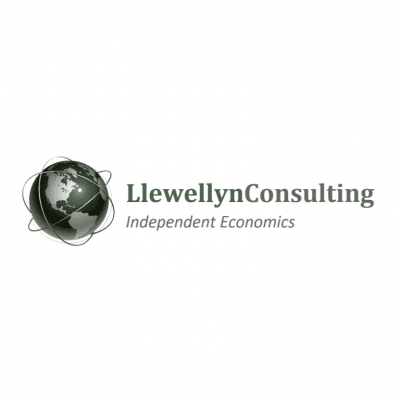ECB – the fine line between stimulus and exuberance

Economic conditions and prospects in the euro area have improved. Markets are exuberant, and the ECB expects the pickup in inflation to prove temporary. Soon however the ECB will have to consider when to start ‘leaning against the wind’. Macro-series-ECB-the-fine-line-between-… Become a member to read the rest of this article Username or E-mail Password […]
Trimmed Means

The ‘Core’ measure of US inflation has risen misleadingly: it seems unlikely virulently to ‘infect’ other prices. [pdf-embedder url=”https://speevr.com/wp-content/uploads/2021/07/Macro-series-Trimmed-Means-July-2021.pdf” title=”Macro series – Trimmed Means – July 202… Become a member to read the rest of this article
Argentina: The “Cepo” Reloaded

Last weekend the Central Bank and the Securities Commission tightened exchange restrictions, putting more limits on the operation with the most traded sovereign bonds, which are usually used by firms to buy dollars. In addition, it was sought to close some mechanisms that allowed… Become a member to read the rest of this article
Sterling’s coming home…albeit slowly

Despite buoyant domestic expectations (or at least hope) football will not be coming home after the England football team lost on penalties to Italy in Sunday’s final of the Euro Championship but Sterling is arguably coming home, albeit slowly.  … Become a member to read the rest of this article
WEEKLY POLITICAL COMPASS

Last weekend’s floods could have political repercussions in Germany. The visit of Turkey’s president to Northern Cyprus could create tensions with the EU over the divided island. Meanwhile, Indonesia’s government has extended Covid-19 restrictions, Serbian and Kosovar leaders wil… Become a member to read the rest of this article
Make Room(s) for change

The key to global climate success

Recent advances in green technologies have made reaching net-zero greenhouse-gas emissions by 2050 not only technically feasible but also economically worthwhile. Meeting this goal—which has started to anchor expectations now that an increasing number of countries have adopted it—is necessary to keep global warming well below 2 degrees Celsius relative to pre-industrial levels. But countries must start rapidly reducing emissions now.
Climate change affects different parts of the world differently, and not all countries are equally responsible—both now and historically—for carbon dioxide emissions. These disparities have so far prevented the emergence of an international consensus on how to share mitigation costs fairly. But in the run-up to the United Nations climate-change summit (COP26) in Glasgow in November, recognition of the severity of the global warming threat, coupled with a dramatic reduction in the cost of renewables, is making rapid progress easier. In fact, the emphasis in the climate debate has shifted from the costs of mitigation to the opportunities provided by new technologies.
The race to realize a net-zero world by 2050 remains tight, with different groups of countries moving at varying speeds. But it is becoming increasingly clear that the performance of emerging markets and developing economies (EMDEs) other than China is likely to hold the key to success.
The race to realize a net-zero world by 2050 remains tight … . But it is becoming increasingly clear that the performance of emerging markets and developing economies (EMDEs) other than China is likely to hold the key to success.
Among advanced economies, Europe is at the forefront of green transformation efforts. The United States under President Joe Biden now seems determined to raise its climate ambitions, and its technological capacity makes it likely to perform well, despite continued domestic political obstacles. The same can be said for other rich countries such as Japan and Canada, which also have the resources and technology to be in the net-zero vanguard.
The poorest countries already suffer the most from ongoing climate change and are the least able to afford mitigation and adaptation measures. On ethical grounds, they deserve a lot of assistance to help them adapt and leapfrog to green technologies, but their total CO2 emissions will be too small to affect the global aggregate significantly between now and 2050.
Related Content
This is not the case for EMDEs, whose level of climate ambition and capabilities will be a major determinant of global success. While emissions in most advanced economies are declining, they are still increasing in most EMDEs, which, including China, now account for about two-thirds of global emissions. (China by itself generates about 30 percent of the global total.)
But, because China differs in some important ways from most other EMDEs, lumping it together with these countries is not the best way to assess their prospects for further decarbonization. For starters, China has both the desire and the capacity to be a global export leader in green technologies, and pursuing this ambition will also boost China’s efforts to tout the attractiveness of its sociopolitical system.
Moreover, China has the financial resources to meet the often-large upfront costs of the green transition, and the country’s semi-public firms may be willing to take the long view needed for many of these investments to prove profitable. Finally, China’s sheer size means that it will benefit substantially from its own emission cuts, diminishing the free-rider problem—a point that many overlook.
There are thus good reasons to believe that China will soon scale up its climate policies and embark on a growth path that reduces emissions much more rapidly than now. In contrast, the other EMDEs, while a diverse group, are almost all still on carbon-intensive growth paths.
EMDEs must invest heavily in power, transportation, housing, and related sectors to meet the expectations of their still-growing populations, including hundreds of millions of very poor citizens. Despite the justifiably optimistic emissions-reduction scenarios for the advanced economies and China, therefore, it is the other EMDEs’ trajectories that could be the difference between limiting global warming to well below 2°C and significantly exceeding this threshold.
Compared to developed countries and China, EMDEs have limited ability to mobilize the long-term upfront finance needed to put them on green growth trajectories. They lack domestic fiscal space and do not qualify for concessional resources from advanced economies, which are mostly reserved for low-income countries.
Moreover, some important EMDEs such as India, Indonesia, and South Africa still rely heavily on coal. While these countries’ primary challenge is rapid growth of new green capacity, they face the additional difficulty of decommissioning relatively new capital stocks. China also must confront these issues, but has greater leeway to deal with them.
The only viable solution to this challenge is a lot of long-term international financing for EMDEs, mostly from private sources. Multilateral development banks should facilitate this process by offering to blend in some slightly concessional financing of their own and providing risk-reducing facilities to mobilize private resources. That would require the MDBs to obtain additional shareholder capital as well as permission to use their balance sheets less conservatively. Meanwhile, China, rather than being a net recipient of foreign capital, will be a source of long-term private and public finance for the other EMDEs.
As policymakers prepare for COP26, prospects for achieving a carbon-neutral world by 2050 are improving. But it is unrealistic to expect to keep global warming well below 2 degrees Celsius if middle- and lower-middle-income countries do not participate fully in the green transformation.
Regional integration in West Africa: Is there a role for a single currency?

In early 2019, leaders of the Economic Community of West African States (ECOWAS) set a goal of achieving a monetary and currency union by January 2020. While the COVID-19 pandemic and a lack of macroeconomic convergence among member countries precipitated the postponement of this goal, ECOWAS leaders have continued to move forward with the project, with the new goal of launching the new currency—“the eco”—in the coming years. Proponents of the currency union argue that it would free businesses and visitors from the burdens of exchanging currencies and encourage intra-area trade, leading to a more deeply integrated and prosperous region overall.
However, the effort comes with significant costs along with operational challenges and transitional risks. As Europe has seen with the euro, even regions with strong institutions struggle to balance politics, public opinion, and monetary policy. Moreover, in Africa, it is uncertain whether the benefits of the eco will be spread evenly across the community given the disparate levels of development and various sizes of the national economies involved. Skeptics of the eco project also note that many of the hoped-for benefits of the shared currency will require an accompanying set of fundamental reforms, including stronger domestic institutional and macroeconomic frameworks.
On July 30, the Brookings Africa Growth Initiative will launch the new book, “Regional integration in West Africa: Is there a role for a single currency?” in which authors Eswar Prasad and Vera Songwe explore the debates under way about how ECOWAS could achieve greater trade and financial integration, with or without a currency union, as well as the ramifications for the African continent. Panelists will explore whether the countries involved are ready for the effort, which obstacles should be addressed so that the currency can be successful, and alternative paths to enhanced economic integration on the continent.
After the program, the panelists will take audience questions.
Viewers can submit questions for panelists by emailing events@brookings.edu or via Twitter @BrookingsGlobal by using #WestAfricaIntegration.
INDONESIA: Next week could be key in effort to bring down cases

The government is expected to extend the emergency restrictions on public activities (PPKM Emergency), which are scheduled to end on 20 July, by another 14 to 21 days. The measures cover Java and Bali, as well as 15 other regencies and cities. National Covid-19 weekly case growth… Become a member to read the rest […]
ASIA: Weekly politics update

Below is the weekly update of political developments across East Asia. Please do not hesitate to contact us if you want to discuss any of the countries mentioned in more detail. CHINA: Xi’s coal message signals willingness to make tough choices Chinese President Xi Jinping said… Become a member to read the rest of […]
